“Did you say bird flu? Where?” My friend’s voice came over the mobile phone.
“No, I said bird flew. F-L-E-W. Flew. The bird flew into the jet turbine just as we were about to take off.”
“Oh, then what happened?”
“Well, the pilot aborted takeoff and we’re back at the terminal building awaiting further notice.”
My friend seemed disappointed that there was not much drama in it. The English language or to be more exact, the English pronunciation, can be a bit of a bitch when you are trying to make yourself understood on a mobile phone. Well, even when you are a natural English speaker, making a call from inside an airport terminal is hardly the place when absolute clarity is of the utmost importance. And I, on the other hand, am an unnatural English speaker. So FLU and FLEW can sound quite the same, what with a whole lot of static in the background and all that. So my friend cannot be totally blamed for getting it all mixed up the first time around. After all it had just been announced that avian flu had hit the Thai province of Kanchanaburi (west of Bangkok) the previous day and although I was at that time in Chiang Mai (far to the north of Bangkok), and Chiang Mai is quite a distance away from Kanchanaburi, my friend was not going to let a little bit of geography get in the way of all the confusion.
But with all that sorted out, I can now make more phone calls to elicit some sympathies from friends in both Malaysia and Thailand. Not many sympathies were forthcoming. Those friends think I travel too much anyway and that I am always having a holiday at the office’s expense. I had always protested that my travels, which average about twice a month, were all for work. Regardless, they still feel I have always got the better part of the deal. Well, maybe I do. But not always, though. This time for instance.
I was returning to Kuala Lumpur after being on AirAsia’s inaugural direct flight from Kuala Lumpur to Chiang Mai. I had stayed back another two days after all the reporters had left for a meeting with some travel agents in the northern Thai city.
It was a morning that began like any other Sunday morning in Chiang Mai. The weather had not gotten quite cold yet. That would come in about a month’s time when winter arrives in late November or early December.
Flight AK897 was scheduled to take off at 11am Thai time and the girl at the check in counter assured us that the flight was very much on time. We boarded the plane which was mostly made up of Malaysians taking advantage of AirAsia’s promotional fare. But my romance with the Lanna Kingdom was not about to come to an end that fast. Lanna Kingdom is the old name for the areas comprising Chiang Mai, Chiang Rai, Lampang, Lampun, Mae Hong Son, Nan, Phayao and Phrae in the north of Thailand. These provinces were integrated into the Thai Kingdom or Siam as it was known then in 1876. By that time, the Lanna Kingdom of course, was past its glory days and had fought a series of war with Myanmar or Burma. But this had in no way diminished the beauty of the land which the northerners still call Lanna (translated as a million rice fields).
But Chiang Mai and the north are not just rice fields, especially modern day Chiang Mai. The second largest city in Thailand after Bangkok, one has to see it from the Doi Suthep Temple, located on a mountain overlooking the city to appreciate how big the city is. And taking a stroll along most of the streets in downtown Chiang Mai you tend to be fascinated by the array of wares and northern handicrafts on sale. Not to mention the beautiful girls selling them. But I here I am a bit biased, I must admit. I tend to fall in love with every third girl I meet in Chiang Mai. So most things Chiang Mai tend to be extremely attractive to me. My women friends may think otherwise, but I would like to dare the men to contradict me on this after a visit to Chiang Mai.
My love story with Chiang Mai actually began years ago. At the farthest end of the city is located the city gates. Visitors are normally warned that as you leave the city, you are never to look back. If you do, be forewarned, you will never be free of the city. You are destined to return again and again and again. And like Lot’s son, who was told not to look back at the city of Sodom and Gomorrah, I did look back at the city of Chiang Mai. It must be plain curiosity or just to disprove the belief. I am not sure whether it really worked, but on the average I had been back there at least twice a year ever since. So much for old wives’ tale, eh? The upside at least is that I did not turn into stone. Otherwise Chiang Mai’s City Hall would have had to contend itself with one unwanted statue.
But what is the story with flight AK897, you may ask. Well, I had settled down in my seat with a good book all ready to while away the flight time, which is close to three hours. The plane taxied off to the runway then slowly picked up speed. But seconds before lifting off there was a loud series of sound quite similar to a 100 passengers gargling simultaneously at the highest pitch their vocal chords could muster. This was followed by a screeching of brakes and in as little time as it would have taken us to be airborne, we instead came to a complete halt. It turned out that the captain, in his cockpit, had seen a big bird flying into his left engine. And to think that I, who was actually sitting at the wings of the airplane had missed the whole thing completely. It was a good thing that the captain had been observant. Otherwise we may have had more than one dead bird and a broken turbine on our hands. The plane taxied back to the terminal building and after ascertaining what had happened, we were deposited on the tarmac and took a slow bus ride back to where we had originally came from just minutes earlier.
But whatever efficiency had been demonstrated by the captain and his in-flight crew was slowly and surely undone by AirAsia’s ground staff at the Chiang Mai International Airport. One actually wonders how they would have coped had it been a bigger emergency. It certainly laid bare the fact that whatever training had been given to them, crisis management was not one of them. Still one wonders how much training or arithmetic were actually needed to figure out that if you have, say 100 passengers, and you decide to serve them food, you actually need 100 packets or more. I believe a cursory glance at the passenger manifest would have helped them to work out the number of people on the plane. In this instance, it was a piece of pizza which came in a neat triangular box. Some had water to go with the pizza. Others had a big glass of Pepsi. All not served at the same time of course. This naturally led to some confusion when another batch of food arrived 15 minutes or so later because one ground staff did not know what the other was doing.
If you think scenes of people clamouring for food in post earthquake Kashmir was bad, then you should have seen what went on in the airport lounge. One would have thought that people who had just spent thousands going on a holiday would conduct themselves a little better than people who had gone without food for days. This was after all the early stages of the wait. Shame on you Malaysians. An elderly Caucasian gentleman did not seem to have the heart to join in the madness, just gave up and went looking for food at the restaurant outside. I could not quite figure out which was more irritating – the fact that Malaysians still do not know how to queue or AirAsia’s Chiang Mai staff not knowing how to count.
The fact that the departure time kept getting moved from 5pm to 8.30pm to 10.30pm did not help much. Still people were willing to put up with it. But I think not many people could tolerate the inept handling of the situation which was a cross between idiocy and lunacy. And I say this not because I have a platform to say it. It is not even because of the feeling of pride I normally feel when I read of Malaysian companies doing well abroad. I say it because it is in my interest that AirAsia do well and turn in better results next year. I would like to see the company’s shares going up a few percentage points so that I could get my dividends at the end of the financial year. Sad to say, I do not think AirAsia’s ground staff in Chiang Mai are exactly turning me into another Warren Buffet any time soon.
Luckily somebody came up with the bright idea that the stranded passengers should be allowed to venture beyond the waiting lounge after depositing their passports with the airline staff. Most just went out in search of food to supplement the piece of pizza. No one seemed particularly interested when a similar menu was to be served for dinner and that night the Thai Airways International restaurant were full of AirAsia’s stranded passengers. Some even went back into town to catch up on some last minute shopping or just to finish off whatever bahts they have left. That at least help to calm a few frayed nerves apart from helping to further stimulate the Thai economy.
We were told that AirAsia would be flying another plane to Chiang Mai to take us home. The damage to the engine was worse than expected. I must say that it was one tough eagle which landed at the wrong place at the wrong time. Going boldly where few other eagles were brave enough to have gone before. It is certainly sad that it took the death of one short-sighted eagle and a perfectly good engine to tell AirAsia that a crash course in crisis management is urgently needed for its ground staff, in Chiang Mai at least. And Chiang Mai, after all, happened to be the hometown of the airline’s biggest shareholder in AirAsia Thailand (at that time at least).
We finally left Chiang Mai at about 11pm and touched down in KLIA at 2.45am. I, for one, actually held my breath when the plane was taking off this time around, hoping that no other eagle decided to avenge its mate’s death and take out another engine. Quite a journey and quite a day, I must say. Still I could not help wondering what would have happened had the plane already taken off when the eagle flew into the turbine. For example, what would have happened if the plane was about 10 feet off the ground? How long would it take the pilot to bring the plane down again or how much thrust would be needed to keep it airborne or whether it would be airborne at all? All questions which are beyond my limited mental capacity. And not being that great at maths, I think I will just save the question for the next time I am in Chiang Mai. The Einsteins in red miniskirts masquerading as AirAsia’s ground staff shouldn’t have too much trouble figuring that piece of maths out for me. Q.E.D.
Tuesday, September 26, 2006
Subscribe to:
Post Comments (Atom)

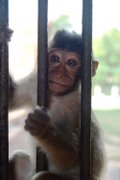
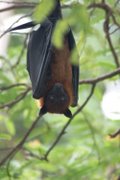
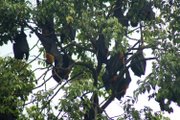
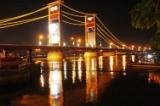
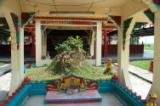
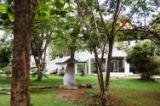
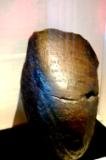
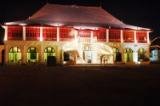
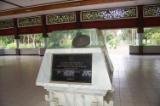
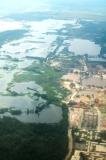

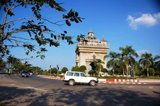
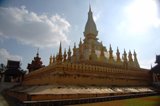
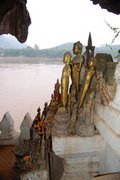

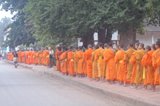
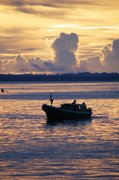
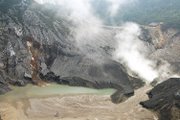
No comments:
Post a Comment